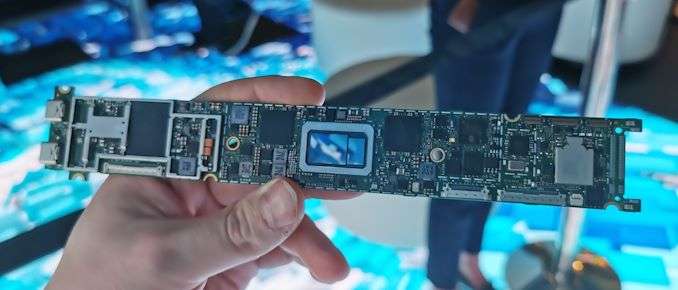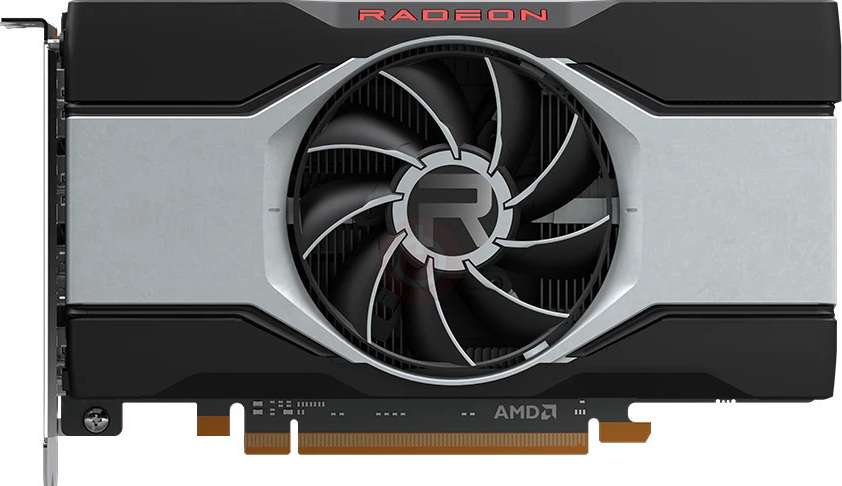AV1 Video Codec: The Future of Superior Quality Video Transmission
Video codecs are the foundation of the multimedia background, determining the quality, effectiveness, and compatibility of the videos we watch regularly. AOMedia Video 1 has transformed the field of video compression by offering more effectiveness and superior visual quality as compared to conventional codecs.
We will find the significance of AV1 in this article, including how top companies such as Apple, Intel, and AMD are utilizing the latest advancements to support AV1 video encoding and decoding. Join us on this journey as we move into AV1's innovative capabilities and its impact on transmitting video content in the future.
In this article
Part 1. What is AV1 and its encoding mechanism
Are you tolerating blurry visuals, buffering videos, and slow streaming? The AV1 has the potential to completely change how we view and share films online. AV1 offers exceptional efficiency and breathtaking visual quality that will impress you with its innovative compression technology.
When compared to codecs such as H.264 (x264) and VP9, AV1 provides greater compression efficiency. It can reduce file sizes while maintaining video quality, even at lower bitrates. Additionally, AV1 is a royalty-free option, meaning that content creators can use it without paying for a license, unlike some commercial codecs.
Many major companies in the technology and streaming industries have embraced AV1, promoting its compatibility and integration with a range of platforms and software. AV1 is designed to work smoothly on various modern devices, such as smart TVs, laptops, smartphones, and tablets.
It ensures that video playback is seamless, whether you are using a high-speed internet connection or a low-bandwidth mobile network. A dedicated team of developers and contributors is working to improve and expand the AV1 video codec. This ongoing development ensures that AV1 remains at the forefront of video encoding technology.
Av1 Encoding Mechanism
The encoding process of AV1 is a wonder of modern technology. AV1 enhances video compression by dividing the video into small blocks of pixel groups and applying mathematical changes using block-based frequency transformations. What was the outcome? Minimum data consumption with high-quality video representation.
AV1 effectively represents modified coefficients and other coding components using context-adaptive binary arithmetic coding (CABAC) and context-based adaptive variable-length coding (CABAVL). Comparing AV1's encoding process to earlier codecs like H.264 and VP9 is intended to achieve greater compression efficiency. Modern video streaming and other applications benefit greatly from AV1's ability to offer high-quality video with smaller data sizes by combining powerful compression techniques with parallel processing capabilities.
Wondering how you can convert AV1 to MP4? UniConverter satisfies your requirement to convert AVI to MP4 more like an all-in-one answer to all of your video demands. That said, you can modify your videos using its drag-and-drop editor to include beautiful graphics, effects, and other components. The best option if you want both quality and quickness is UniConverter.
Part 2. Apple silicon that supports AV1 video encoding and decoding
To satisfy various performance requirements, Apple developed four distinct processor types. The M1 and M2 chips are optimal for a variety of devices because they provide the perfect combination of performance and power efficiency. The M1 Pro and M2 Pro processors boost performance to a new level by including extra high-speed CPU cores and having double the memory bandwidth of the M2 chip, which results in an astonishing 200GB/s.
The M1 and the most current M2 are the two which stand out. Since these processors aim to combine performance and energy, they work well with some gadgets, including the MacBook Air and MacBook Pro. Although the M1 and M2 are excellent at supporting high-resolution codecs like H.264 and H.265, neither of them offers hardware acceleration for the AV1 codec.
Despite being effective and powerful, Apple's M2 processor is not equipped with hardware acceleration for the AV1 codec, making it less suitable for AV1 video encoding and decoding. AV1 encoder GPU support can compensate for this restriction, but it's important to remember that M2 AV1 hardware acceleration does not support this chip.
Apple’s future move concerning av1 videos
Apple may be working on integrating AV1 compatibility in the upcoming modifications of its silicon chips, given its active participation in the Alliance for Open Media consortium and the growing popularity of AV1 as a fast and efficient video codec.
The powerful AVFoundation framework was created to manage time-based audiovisual (AV) content across all Apple platforms, including iOS, macOS, watchOS, and tvOS. Future versions of Apple hardware, including the Apple M2 AV1 capability, would be a necessary improvement. Apple devices may still support AV1 even if hardware acceleration is not immediately available due to software-based decoding.
The IT community is anxiously awaiting announcements from Apple on AV1 support, as they might signal a turning point in the company's ability to playback video.
Part 3. Intel silicon that supports AV1 video encoding and decoding
Let's focus on Intel AV1, another significant player in the technology industry, and explore its capabilities in AV1 video encoding and decoding as Apple's M2 processor continues to be in the public eye for possible AV1 support.
Intel has been working hard to include AV1 functionality into their silicon to improve video encoding and decoding skills. With the addition of specialized AV1 hardware acceleration, the organization has significantly improved the performance and effectiveness of video processing in some of its most recent processors.
1. Tiger Lake
The 11th generation Intel Core processors, code-named "Tiger Lake," have AV1 hardware encoding and decoding capabilities. It corresponds to improved engaging quality and less CPU load on devices running on these CPUs since they can smoothly decode AV1-encoded media. Users may now watch videos with a greater resolution while using less power.

2. Meteor Lake
The introduction of Intel's Meteor Lake CPUs is a remarkable innovation that might accelerate the adoption of this video format by well-known streaming providers. The support for AV1 encoding has been expanded to include various architectures in addition to Intel's Meteor Lake.
A big step toward accepting the new and effective video format is their future Meteor Lake and DG2 series' support for AV1 8-bit and 10-bit video encoding and decoding.
![]()
By including AV1 decoding algorithms in its most recent integrated graphics GPUs, Intel has also entered into the race. It makes things possible for Intel clients to benefit from AV1's advantages, such as enhanced video quality and less data use, without the necessity of specialist graphics cards.
Part 4. AMD silicon that supports AV1 video encoding and decoding
Similar to Intel, AMD has used AV1 video encoding and decoding technologies in its most recent graphics processors, notably the RDNA2 GPUs found in the RX 6000 av1 series. Let's explore the AV1 video processing capabilities of AMD's silicon.
With its most recent graphics chips, AMD has made advancements in supporting AV1 video encoding and decoding. The AMD RX 6000 series' RDNA2 GPUs have strong AV1 decoding capabilities, allowing for fast and high-quality video playback. Users will enjoy flawless AV1 video experiences on their devices powered by AMD hardware because of AMD's effort to adopt this innovative video standard.

The RDNA2 GPUs from AMD's RX 6000 series distinguish themselves for their outstanding efficiency while handling AV1 videos. Because these graphics processors feature AV1 hardware decoding capabilities, AV1-encoded videos may be played back smoothly and effectively.
ADM’S future in AV1 video
AMD's ongoing involvement in the video processing industry, which includes working with organizations like the Alliance for Open Media and video codec developers, likely, the business will actively contribute to the advancement of AV1 technology.
AMD is anticipated to play a crucial role in marketing and deploying the codec across various devices and platforms as the AV1 ecosystem develops, strengthening its position as a top supplier of AV1-capable semiconductor solutions.

